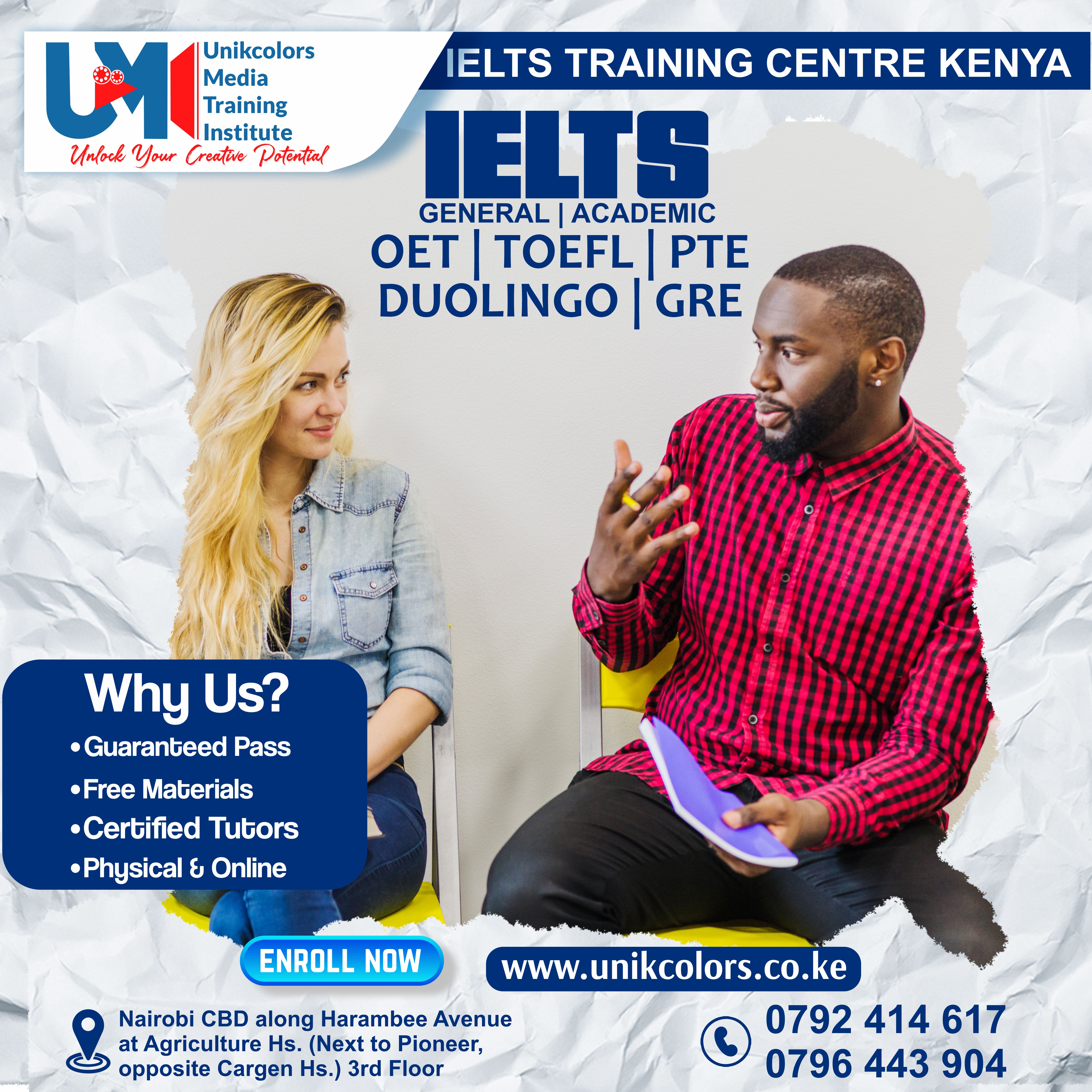IELTS TRAINING CENTRE KENYA - IELTS PREPARATION | OET | TOEFL | PTE | GRE | DUOLINGO

Title: IELTS TRAINING CENTRE KENYA - IELTS PREPARATION | OET | TOEFL | PTE | GRE | DUOLINGO
IELTS Speaking Part 2 Tips: Brush Up Your English Skills
In the IELTS speaking part 2, you are given a topic to speak. The examiner allows a minute in which you have to jot down points on a particular topic before speaking. The topic can be related to a person you know or an event. After that, you have to speak about the said topic for two minutes without any interruption.
If you stop speaking, you will be asked to continue. The examiner asks you to stop after two minutes. How well you speak for the given time is monitored closely. You will be asked a question on the topic you spoke on.
If need be, there will be a couple of other questions put across. You will have to give short answers.
Your performance will be evaluated based on lexical resources, fluency and coherence, pronunciation, and grammatical accuracy and range.
These four components help you score a good band in IELTS Speaking Part 2.
Here are some IELTS Speaking tips for 1. Take notes before speaking
First and foremost, the examiner hands you a paper and pencil and tells you to prepare on a particular topic for a minute. You can list out words or ideas through keywords and if need be, draw a mind map. Take notes wherever necessary. You can make grammatical mistakes if you are not careful. Often, candidates are in a state of panic and forget things. They do not know what they want to convey. It is essential to make detailed notes.
Thus, practice jotting down points as part of the IELTS Speaking test preparation. Some of the IELTS Speaking topics relate to life events and personal experiences. These include:
- Study, school and work
- Changes or life events
- Certain places where you have been or would like to visit shortly
- Free time activities and hobbies
- Ambitions and goals
2. Opening phrase is important
Your opening phrase or statement should be packed with many words. As you have ample time in a long turn speech, you must convey what you want to say. It should not be a simple statement. At best, try to build an intro by memorising it. Remember a good opener will impress the examiner and enhance your chances to secure a good band score.
3. Practice more while paraphrasing a topic
Use different words while paraphrasing a topic. It is described as one of the essential IELTS speaking part 2 tips. Do not use the same words of a topic card. Instead, use your own words. If you use different synonyms and adjectives, it serves your purpose. The more you use a range of vocabulary and grammar in IELTS Test, the better it is to score higher marks.
4. Maintain the flow
All you need to do is to speak continuously. Several ideas on a topic can be communicated in two minutes. Do not pause nor stop.
5. Fluency is important
Don't make the mistake of speaking abruptly or quickly. Your speech has to be steady keeping in mind coherence and fluency aspects. The examiners will understand the context of a particular topic if you speak slowly and at a steady pace. The more you pronounce correctly, the better it helps you to boost your scores.
6. Decide before talking
You might be asked to speak about your favourite professor. Before that, you have a minute in hand to think and prepare your speech. The best way to describe your professor is to jot down points and describe a particular incident about him. You do not have to be honest as it is not assessment criteria. The examiner will only judge you with how you put your views across. The most important are language, pronunciation and fluency.
7. Be polite in asking for a clarification
Are you confused and unable to understand the word on the topic card? Ask the examiner politely. It would help if you did not waste any time but ask him before your one-minute preparation time starts. If you fail to do so, the examiner will include your clarification within the one-minute time.
